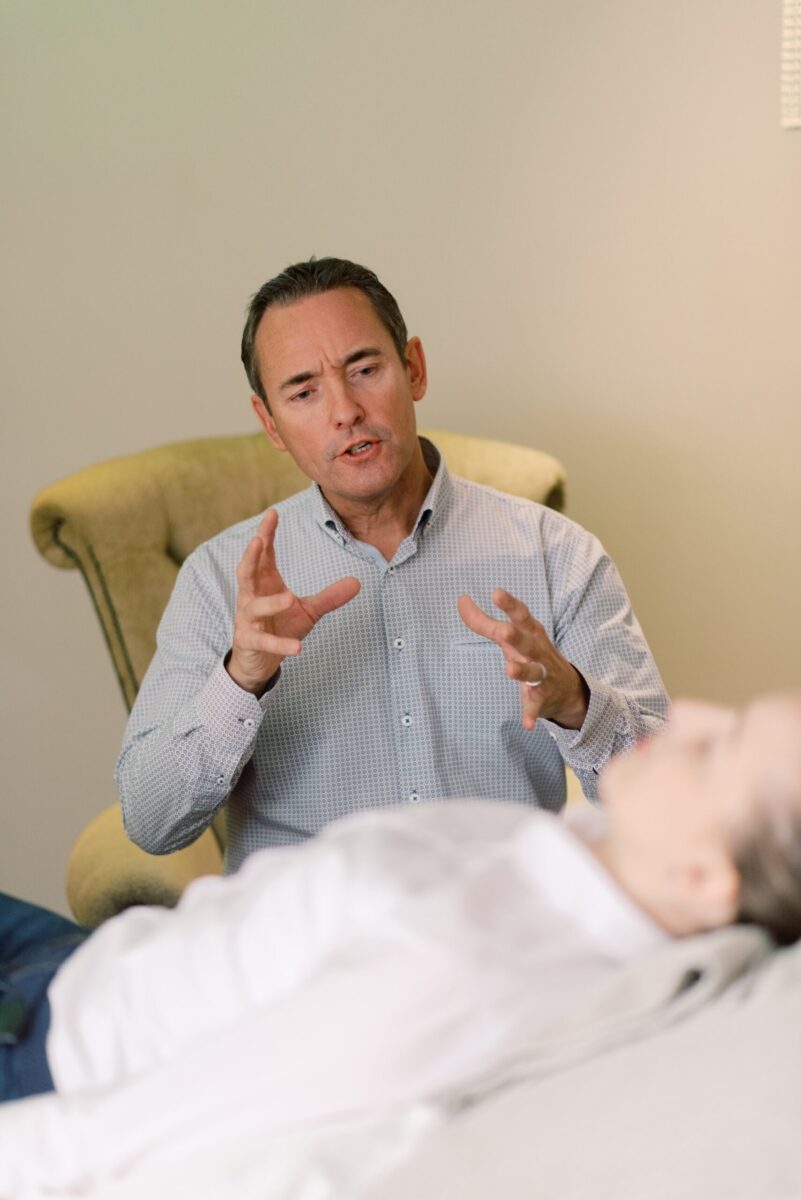Speech Therapy in Home Health Care
People are social animals. So much of what we do and who we are is tied up with our ability to communicate with those around us. But physical and psychological ailments can cause problems with speech generation. After many years working in health care, we at UCLAHHC know how distressing it can be for patients to lose their power of speech. Too many fall into despair when they cannot find a way to communicate, to make even simple requests known to those around them. For that reason, we include speech therapy for those who need it in our home health plans.
Being knowledgeable about the complicated apparatus that make up the mouth and throat, our speech therapists can help patients maintain and even relearn the power of speech. This knowledge also extends to another critical aspect of life: swallowing. Difficulty with swallowing greatly worsens one’s quality of life and can even be deadly if the unfortunate patient aspirates food at a bad time. Considering the importance of these two aspects of life—speaking and eating—it is no wonder that our speech therapists have improved the lives of many of our patients.
Help To communicate
Many conditions and diseases can affect one’s ability to produce speech. Laryngeal cancer and oral cancer can ravage the parts of the body needed to vocalize. Amyotrophic lateral sclerosis (ALS) can impact the muscles that are needed for speech and swallowing. Huntington’s disease impacts a part of the brain that controls muscles. Strokes commonly cause partial paralysis, impacting speech. Dementia and other cognitive defects can slowly take away the power of speech.
Speech problems come in a few broad categories:
- Dysarthria refers to loss of control of the muscles associated with speech. This makes it difficult for the speaker to articulate sounds, but it does not imply an inability to understand spoken words. Treatment involves exercises meant to strengthen the muscles needed to articulate speech.
- Aphasia means an inability to understand language due to brain damage. It is most often caused by strokes and head trauma. Treatment involves activities meant to work the language-processing part of the brain. Complete recovery of speech is unlikely in people with aphasic difficulties, but slow and steady improvement is possible with dedicated speech therapy.
- Dysphonia is an involuntary abnormality of voice production and can be caused by a variety of issues, such as Parkinson’s disease, vocal nodules, and hyperthyroidism. Treatment varies based on the problem’s cause, but a therapist can help resolve muscular issues that might affect vocal production.
- Dementia, in its later stages, can impact speech production. Patients with dementia can sometimes forget words or might shout and mumble at inappropriate times. Therapy can reduce instances of such distressing behaviors, but regaining lost ability is not likely. Instead, the speech therapist will help the patient retain as much communication potential as possible. Dementia, sadly, cannot be stopped, but with the help of one of our speech therapists, we can slow the decline.
With so many causes behind speech difficulties, our speech therapists must understand the many ways’ speech can be negatively impacted, from muscle deficiencies to faults with the brain. They have a full suite of techniques to help patients retain the power of speech, but there are times when that cannot be done. If the larynx has been surgically removed, for example, then speech becomes all but impossible. For those circumstances, our speech therapists maintain a bevy of alternative treatments to help people communicate, if not speak. These come in a variety of formats: signs and gesturing are enough to communicate basic needs. A pictographic grid the patient can point at is an easy, low-tech solution. If the patient can continue to write or type with the aid of occupational therapy, then that is an obvious solution to the communication problem. If using a pen or keyboard is too challenging, though, then there is some potent computer and tablet software available that can help to ail people communicate.
Help To swallow
Not being able to eat favorite foods harms a person’s quality of life. It’s not just because of the struggle to get adequate nutrition and hydration, but the very act of eating delicious foods is life-affirming, and being able to share meals with families is good for a patient’s mental health. Problems swallowing also spell trouble for taking pills or liquid medicines, which might then have to be delivered through invasive means, such as injections.
Thus, it is our firm belief that therapy helping clients swallow is a critical part of home health care, and our speech therapists are knowledgeable of many techniques that maintain and strengthen the muscles and reflexes used in swallowing.
Since swallowing and speech use many of the same muscle groups, the issues that affect one often affect the other. Strokes and head trauma can damage the part of the brain controlling the throat, Parkinson’s and other conditions can alter how one controls the muscles, and so on. Each patient is different, so our speech therapists use a range of methods to help their patients.
- Sometimes, even something as simple as changing the patient’s posture can help control swallowing. Our speech therapist will discover what’s most comfortable for the patient, and family caregivers and home health aides can ensure the patient adopts that posture for mealtime.
- To maintain and restore strength, the patient needs to exercise the muscles of the throat, just like any other muscle. The therapist will guide the patient in safe, easy exercises that isolate and work the muscles of the mouth and throat.
- Some medicines inhibit salivary flow, resulting in a dry mouth and throat. If the problem is severe, the therapist might suggest that the doctor prescribe a new medication.
- In conjunction with all these, the therapist will have practical advice: cut food into smaller chunks, drink plenty of water, avoid excessively dry or powdery foods, and so on.
Eating and speaking are important parts of life that tend to go unappreciated by those who use those powers without effort, but it does not take an exertion of imagination to realize that a person who cannot swallow or talk will struggle to live a full life. Therefore, UCLAHHC’s speech therapists play a necessary role in home health care, contributing to the mental and social health of our patients by allowing them to speak to loved ones and enjoy their favorite foods.



